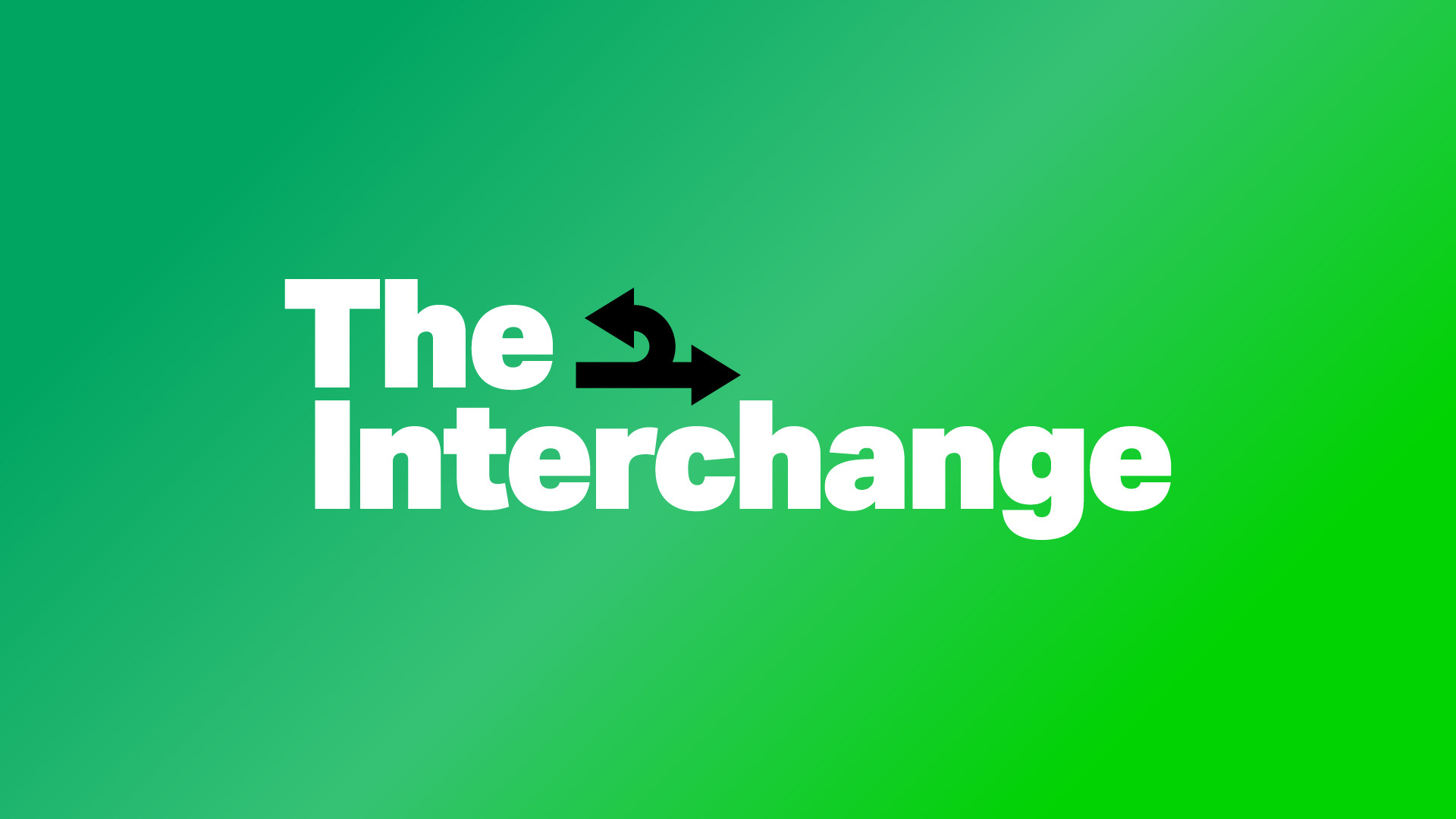[ad_1]
Welcome back to The Interchange, where we take a look back at the hottest fintech news from the past week. If you’d like to receive Interchange straight to your inbox every Sunday, go here to sign up! We covered a lot of events in the fintech world last week — including a raise, a startup being shut down, some drama between a fintech and a bank, and much more.
Women leaders in fintech
I don’t get the chance to report on women leaders in fintech as often as I’d like. This week, I had the opportunity to talk to two people and write about them. Their stories were very different – but both very important.
Early last week, I came across a blog post written by Amanda Peyton, co-founder braid, a startup is marketing a shared wallet to friends and family so they can pool their money together for things like travel. Peyton was candid about the demise of the company, which closed last month. Not only did she accept responsibility for its failure, but she also detailed – almost excruciatingly – what she believed went wrong. The concept was good but the implementation was not easy. Problems in finding a sponsoring bank set the company back. Relying on third party software was another issue.
But Peyton, who has founded other companies in the past — one of which was sold to Etsy — isn’t letting Brad’s closure get her down. He revealed the IP for Brad and hinted that there was more to come. His attitude was enthusiastic. He told me that startup failure is simply a part of the life cycle. And he is right. More than 90% of startups fail. He is 9-0. With such a great attitude, something tells me we’ll be hearing about a new venture involving Peyton soon. Read all about her experience with Brad — which was backed by Index Ventures and Accel — here.
Hear more from me and the rest of the Equity team about this here.
I also wrote about this hiding place, an investment app targeted at low- to moderate-income consumers. The company secured $40 million in convertible notes led by current and early backer T. Rowe Price. While many companies don’t always like to admit that they’ve let employees go, CEO Lisa Landsman shared with me that Stash has cut its workforce by more than 35% in the last 22 months — 500 by early 2022. From. Now around 320. The company is working hard to prepare itself for the public markets. And investors often like it when a company takes steps like layoffs to reduce losses. As part of its goal to go public, Stash also revealed that it has selected Amy Butt to serve as its first independent audit chair, which she believes will be especially useful for consumer Important for fintechs that plan to go public. Batte is no stranger to fintech and seemed really excited about Stash and its mission.
I also got a comment from an investor – Rebecca Cadden, managing partner at Union Square Ventures. I can’t remember ever talking to three different women for a fintech story before. Love seeing it!
You can read all the details about Stash here. – Mary Ann
The Synapse, Evolve Saga
What happens when companies don’t want to work with each other? synapsewhich operates a platform enabling banks and fintech companies to easily develop financial services, was providing those types of services as an intermediary between banking partners. Develop Bank and Trust and business banking startups Mercury,
When Evolve wanted to work with Mercury, the bank informed Synapse of this and discussed how it would work with Synapse to end the relationship. This escalated into chaos when private letters from Evolve and Synapse became public in a lengthy Fintech Business Weekly post on October 8, which claimed that the companies had been talking to each other following Evolve’s decision to end its relationship with Synapse. Were in disagreement with.
Naturally, both companies wanted to clear up the situation. Here’s what he had to say. – Christine
weekly news
After a fruitful second quarter, there has been a decline in funding to fintech startups in the third quarter, according to data released by . Traxon, Total funding fell 51% to $2.7 billion compared to $5.5 billion in the industry in the same quarter of 2022. Only one unicorn was born, family insurance (Read some of our earlier coverage), while seven companies raised more than $100 million.
Rob Curtis, who co-founded the LGBTQ+-focused neobank daylight, shared on LinkedIn that he has officially moved on from fintech. (In May, TechCrunch reported on the company’s decision to shut down after being sued by employees.) We don’t know much yet about his new venture other than it’s a consumer tequila company based in Mexico City. He also mentioned that Deloitte had been acquired, but when we contacted him to know more, he declined to comment.
Several stories emerged from India this week, both reported by Manish Singh: First, master card CFO Sachin Mehra, while praising the country’s digital payments system, known as UPI, while speaking at a UBS conference, criticized it, saying, “This has been an incredibly painful experience for ecosystem participants, who Ultimately lose money as part of that offer. ” Meanwhile, banks are the newest investment target for venture capital and private equity investors, and they are working on investment vehicles to accelerate this.
As reported by Ayesha Malik last week, Klarna Introduced a suite of new features, including an AI-powered image-search tool called Shopping Lens. The Swedish fintech giant is also launching shoppable videos, in-store product scanning, a new cashback program, express refunds, and more in Europe.
Manish Singh also reports that Brazil is the second largest market WhatsApphas suspended the instant messaging app’s mobile payments service in the country a week after its rollout, the latest blow to Facebook. In a statement, Brazil’s central bank said it was taking the decision to “maintain an adequate competitive environment” in the mobile payments sector and to “ensure the functioning of a payments system that is interchangeable, fast, secure, transparent, open.” And it’s cheap.”
blockThe fintech company founded by Jack Dorsey, formerly known as Square, has been acquired by Hi-Fi, a music-focused fintech startup, for an undisclosed amount. Hifi launched in 2020 as a financial rights organization for artists, enabling users to track their royalty income through a dashboard that integrates with music labels, distribution services, music publishers, and performance rights organizations ( PRO). This is the block’s second investment in music technology after purchasing music streaming service Tidal in 2021. More from Lauren Forristal here.
Adyen Market cap lost $13 billion last month as investors scrambled to sell shares after the payments company missed quarterly revenue targets. But this is not the only case facing the music in fintech. shares in To guessA privately held European payments technology business that focuses on point-of-sale transactions is currently being sold to an internal sale (to other existing investors in the company) at a valuation of at least $4.1 billion – approximately The decline is 52% on SumUp’s previous valuation of $8.5 billion, achieved by raising $624 million in June 2022. More here.
greentoeAn e-commerce negotiation site and Y Combinator graduate that has facilitated more than $700 million in transactions has been acquired by discountbandit.com, TechCrunch originally reported on GreenTo, which developed the “Name Your Price” feature in 2014.
Other things we’re reading,
The small banks that operated Cash App grew like crazy. Then the Feds came calling
Banking startup Rho in talks to buy MisterBeast-backed Creative Juice
Deal launches AI-powered HR assistant to simplify global recruiting
Oram launches first product built on FedNow
Kushki becomes first next-gen payments acquirer in LatAm, giving PSP ‘more control’
Federal judge dismisses Dodd-Frank Act violations, other claims against Betterment
Grow Credit Inc.’s financial inclusion offering is a game changer (Read TC’s previous coverage on Grow Credit.)
The future of fintech: SVB’s perspective on innovation in the fintech industry
Funding and M&A
As seen on TechCrunch
Careful receives $16.5 million to protect seniors from financial fraud
Zest Equity, a UAE-based startup digitizing private markets deals, raises $3.8M seed funding
World Bank’s IFC backs Indian insurtech startup OnSurity with $24M funding
European digital insurtech startup GetSafe acquires Luko’s German portfolio, reaches 550,000 customers
Canopy Servicing’s $15.2M Series A1 shows fintech startups raising in 2021 can still get money (TC+)
Stock trading API developer Alpaca raises $15M convertible notes from SBI Group
CRED is in talks to acquire mutual fund startup Kuvera.
seen elsewhere
Abu Dhabi’s Mubadala plans to invest $1B per year in Brazil
Vellum raises $7 million

Image Credit: bryce durbin



